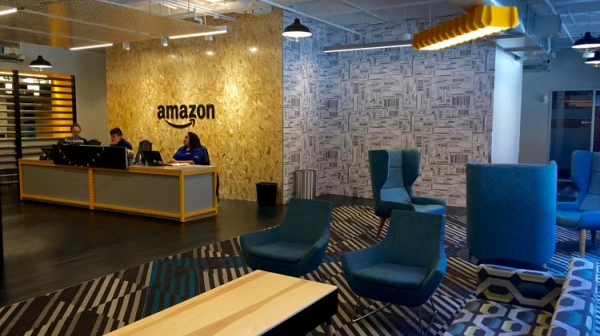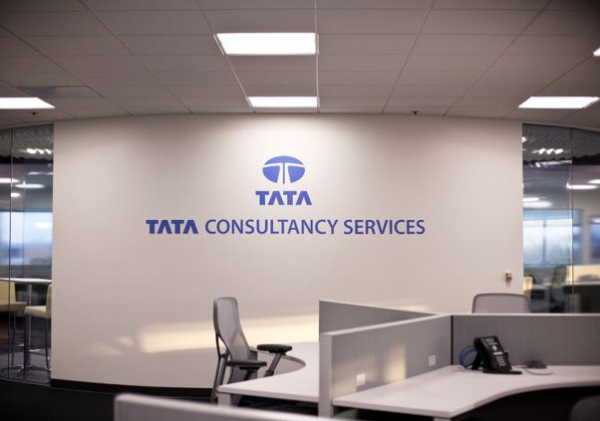Work from home policies are being revoked by 10 major tech giants, ranging from Amazon to TCS
IBM In January 2024, IBM gave U.S. executives an ultimatum: move within commuting distance of their offices by August or resign. An internal memo states that
- by B2B Desk 2024-04-15 10:29:14
Google

The tech company has made its office requirements stricter. In a memo last June, Fiona Cicconi, Google's head of human resources, stated that the company would only review new requests for remote work "in rare circumstances." Employees who reside nearby the office are obligated to follow hybrid work schedules and are required to come into the office for a minimum of three days each week, monitored through their badge swipes. Managers have the ability to include office attendance in performance evaluations.
Meta

Meta CEO Mark Zuckerberg was once optimistic about remote work, but he's done a 180 degree. As of September 2023, Meta requires employees to report to work three days per week unless specifically exempted. The company has even threatened to punish users who don't abide by its new FaceTime policies. This is a stark reversal from Zuckerberg's previous statement that half of Meta's employees could be remote by 2030.
Amazon

Amazon didn't mince words when it ordered employees to return to the office three days a week starting in May 2023. CEO Andy Jassy told employees who don't want to return to the office: "Order," Jassy said firmly, calling it a "judgment." He suggested that those who did not want to participate should leave.
Dell

Dell has rescinded its previous green remote work policy. In May 2023, Chief Operating Officer Jeff Clark told employees who live within commuting distance that they must come into the office at least three days a week. This is in contrast to CEO Michael Dell, who in 2020 praised working from home for reducing greenhouse gas emissions by eliminating commuting.
Activision blizzard

The Activision Blizzard King Workers Alliance claims that the requirement for quality assurance staff to return to the office is leading to "soft layoffs." In November 2023, these employees in the three cities were told they would no longer be able to work a hybrid schedule and would have to report to work full time in January. Hundreds of people have asked to work from home permanently due to financial, disability or other factors, and the Alliance believes many will be forced to retire.
IBM

In January 2024, IBM gave U.S. executives an ultimatum: move within commuting distance of their offices by August or resign. An internal memo states that all managers, regardless of previous remote status, must report to an IBM facility or customer site three days per week to monitor badge data. Those who are unwilling or unable to relocate closer to the office may be fired.
Infosys

Indian technology services giant Infosys tweaked its approach in November 2023, telling some employees they would have to spend 10 days a month in the office under a new hybrid policy. CEO Salil Parekh acknowledged the importance of flexibility, but felt certain roles required more direct collaboration.
Rockstar

Video game company Rockstar isn't kidding about its mission. As the long-awaited release date for Grand Theft Auto VI approaches, the company has told employees that they will be asked to return to the office full-time, five days a week, in February 2024. Rockstar appears to be aiming to avoid a recession. recession. Pre-release date. Productivity and security concerns led to the leak of blockbuster games.
HCL
HCL Technologies, an Indian IT services provider, instituted a new hybrid work policy in mid-February 2024. All employees in all roles are required to work in a designated office at least three days a week. The company warned that failure to comply would result in disciplinary action, including absenteeism.
TCS

Following the lead of its Indian peers, Tata Consultancy Services (TCS) has also started bringing employees back to the office. In early February 2024, TCS issued a final directive stating that working from home has made "employees and employers vulnerable". A company spokesperson reportedly said there would be "consequences" for not complying with the new internal requirements.
Also Read: Top 5 Indian Entrepreneur's Journey from Challenges to Achievements
POPULAR POSTS
Loan EMIs to Drop as RBI Slashes Repo Rate - Full MPC December 2025 Highlights
by Shan, 2025-12-05 11:49:44
Zoho Mail vs Gmail (2025): Which Email Platform Is Best for Businesses, Startups, and Students?
by Shan, 2025-10-09 12:17:26
PM Modi Launches GST Bachat Utsav: Lower Taxes, More Savings for Every Indian Household
by Shan, 2025-09-24 12:20:59
$100K H-1B Visa Fee Explained: Trump’s New Rule, Clarifications & Impact on Indian Tech Workers
by Shan, 2025-09-22 10:11:03
India-US Trade Deal Soon? Chief US Negotiator Arrives in Delhi as Talks Set to Begin Tomorrow
by Shan, 2025-09-15 11:54:28
Modi Meets Xi: Trump’s Tariffs, Strategic Autonomy, and the Future of Asia’s Power Balance
by Shan, 2025-09-03 06:40:06
Google Claims Gemini AI Uses Just ‘Five Drops of Water’ Per Prompt, Sparks Debate
by Shan, 2025-08-22 12:34:27
RECENTLY PUBLISHED

Pine Labs IPO 2025: Listing Date, Grey Market Premium, and Expert Outlook
- by Shan, 2025-11-05 09:57:07

The Agentic Revolution: Why Salesforce Is Betting Its Future on AI Agents
- by Shan, 2025-11-05 10:29:23

Top 10 Insurance Companies in India 2026: Life, Health, and General Insurance Leaders Explained
- by Shan, 2025-10-30 10:06:42

OpenAI Offers ChatGPT Go Free in India: What’s Behind This Big AI Giveaway?
- by Shan, 2025-10-28 12:19:11

Best Silver Investment Platforms for 2025: From CFDs to Digital Vaults Explained
- by Shan, 2025-10-23 12:22:46





 Subscribe now
Subscribe now 